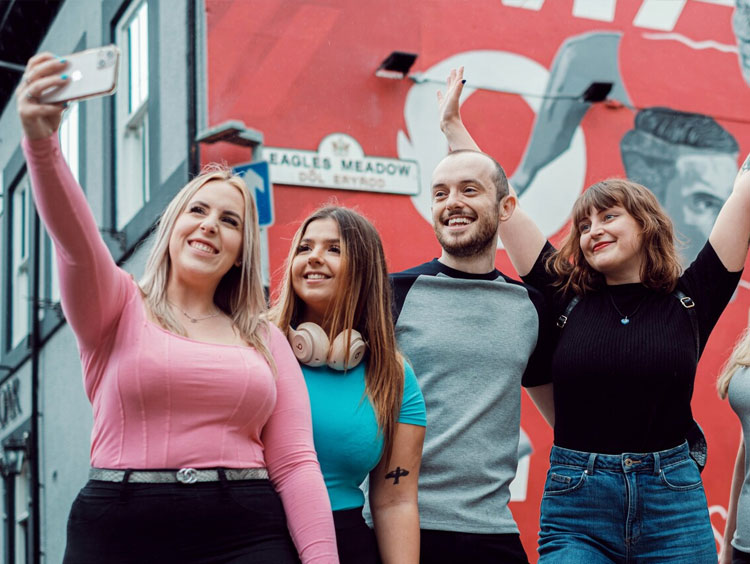.jpg)
Food Sciences
Content Accordions
-
Publications
Fitriani, A., Haliza, M. N., Utami, N. P., Nyambayo, I., Sanayei, S., & Rahmadhia, S. N. (2024). Texture Profile Analysis of Lamtoro Gung (Leucaena leucocephala ssp. Glabrata (Rose) S. Zarate) Tempeh. Journal of Agri-Food Science and Technology, 5(1), 65-71.
Comblik, K., Hawkes, M. J., Lunel, M. L., & Nyambayo, I. (2023). Meat packaging sustainability perception among undergraduate university students studying Food and Forensic Science related courses: A Coventry University scoping exercise. SustainE, 1(2), 1-42. (2024)
Jepson, L. M., Daniel, R., Nyambayo, I., & Munialo, C. D. (2024). The isolation and characterisation of protein from nine edible insect species. Journal of Food Science and Technology, 1-10.
Closing the loop in the Welsh Agriculture and Food Circular Economy.
A multidisciplinary team at Wrexham University, led by Dr Isabella Nyambayo, Senior Lecturer Nutrition and Dietetics, has won over £7k of funding from Wales Innovation Network for a project within the agri-tech, food, and rural economy sector. The funding is provided to seed fund the work of collaborative Welsh research and innovation groups, based around areas of acknowledged strength.
In total, 23 projects were funded across Wales resulting in the generation of bid submissions worth over £9m, with a further £14m of future bids in development. Involved in this bid with Isabella from Wrexham are Prof. Dr Graham Bonwick, Senior Lecturer in Food Science; Dr Phoey Teh, Senior Lecturer in Computer Science; and Dr Sanar Muhyaddin, Lecturer in Business.
From external partner universities, the team comprises of Dr Rob Elias, BioComposites Centre, Bangor University; Ginnie Winter, Food Technologist from Cardiff Met; Prof. Sonal Chaudry, Professor in Sustainable Management, University of York; and Prof Bing XU, Professor of Finance, Heriot-Watt University.
Other external partners include Dr Ifeyinwa Kanu, CEO IntelliDigest Ltd, Scotland; David Rose, Founder, CEO, JustOne Organics, USA; and Dr Mulugheta T Solomon, Agricultural and Food Systems Specialist (Post Harvest Technology) Data Analytics and Agri-Tech Consultant, Belgium.
.jpg)
The Project:
Currently, the Welsh food system relies heavily on animal-based dietary proteins. Meat consumption has been linked to health and environmental concerns and impact. Exploring more sustainable diets to support a circular economy will help to improve the health of communities and environments.
WWF Cymru Wales - A Welsh Food System Fit for Future Generations report (2020) raised concerns that many Welsh people cannot afford access to a healthy sustainable diet accompanied by recommendations.
Through this consortium, we aim to review these recommendations by designing and linking food systems from farm to fork whilst improving regeneration of soil, re-localising food system, strengthening food security, and creating economic incentives; implementing the Wellbeing of Future Generations Act mandates; designing training and skills development for agrifood sector; designing food, marketing, digital, and financial infrastructures linking producers and consumers; reducing food waste to improve access to healthy food and collating data to be incorporated into Welsh National Universal Food Framework.
The consortium’s expertise includes food science and safety, nutrition, product design, packaging, postharvest technologies, net zero strategy, marketing, food engineering, sustainable financing, computer science, working with small businesses in agri-tech and food sector, and bidding for capital and research funding.
Workshop 1
The consortium of experts will carry out a Rapid Review to identify the gaps or challenges of the circular economy in Wales. Summarise the information into a publication as well as identifying Welsh stakeholders.
Workshop 2
One day conference/workshop with Welsh stakeholders and team and produce a summary of how the consortium will address some of the recommendations in the WWF Cymru Wales report.
Workshop 3
Bid writing including finalising budgets, project activities, and timelines for the phase 2 (£1 million) project. Identify activities which would require continuous support to enable continuity within the Welsh circular economy.



